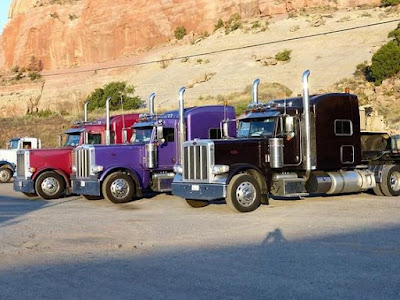In today’s fast-paced, interconnected world, dispatcher services have become an indispensable part of numerous industries. From coordinating logistics and transportation to managing emergency responses and customer service, dispatchers ensure that operations run smoothly and efficiently. Whether you’ve experienced their services directly or indirectly, their impact is undeniable. But what exactly is a dispatcher service, and why is it so crucial? Let’s dive in.
A dispatcher service is essentially coordinating and managing tasks, resources, and communication to achieve smooth operation inside an organization. Dispatchers play the role of middleman in communicating between the organization and field staff or customers by making tactical decisions in real-time to optimize workflow and solve problems.
Jobs That Rely on Dispatcher Services
1. Transportation and Logistics
Dispatchers are critical to freight and delivery services. They dispatch drivers to routes, track deliveries, and ensure timely pickups and drop-offs. For trucking companies, a dispatcher ensures regulations are followed, enhances fuel efficiency, and schedules properly in order to minimize downtime.
2. Emergency Services
Emergency service dispatchers, like 911 operators, organize first responders-including police, firefighters, and paramedics. They are trained for a high-pressure job where they should be able to extract information that is critical to the caller and direct the help promptly.
3. Taxi and Ride-Sharing Services
Autonomous dispatcher systems are used with ride-sharing companies, such as Uber and Lyft, to match passengers with drivers. Prepaid taxi services also use human dispatchers to match riders with available cabs.
4. Field Service Management
From HVAC technicians to utility repair personnel, dispatchers coordinate the schedules and deployment, make sure workers arrive at their respective locations on time with the right gear and equipment, and provide the necessary information.
Key Responsibilities of a Dispatcher
Resource Allocation
Dispatchers supervise resources like vehicles, personnel, or equipment to ensure that they are used optimally.
Communication Management
They act as a central communication hub, relaying instructions, updates, and critical information to the teams and clients.
Problem Solving
This would require dispatchers to think on their feet and answer problems such as delays, cancellations, or emergencies to ensure the smooth running of operations.
Data Tracking and Reporting
They track completed tasks, monitor how things are going, and retain records as a basis for reporting and processes for improvement.
The Significance of Dispatcher Services
1. Effectiveness and Productivity
Dispatchers help streamline operations, both in terms of resource utilization and successful completion of tasks on time. Coordination by them reduces downtime and enhances productivity at large.
2. Impromptu Problem Solving
Be it directing a driver due to traffic or coordinating an emergency response that must reach the scene in a hurry, a dispatcher makes decisions in real-time to combat unexpected problems.
3. Customer Satisfaction
In customer-to-customer businesses, effective management of the dispatcher service ensures prompt and on-time service, hence increasing customer satisfaction and loyalty.
4. Cost Management
Optimized scheduling and task assignment leads to savings in fuel, labor, and other operational costs.
Technological Innovations in Dispatcher Services
The introduction of technology in the dispatcher services has increased their efficiency and scale.
1. Automated Dispatching Systems
Today, all such software developments like GPS tracking, route optimization, and AI-based algorithmic solutions ensure streamlined dispatching processes. With this hardware and software integration, large numbers of tasks can be performed with greater accuracy.
2. Mobile Applications
Apps allow field staff to receive real-time updates, report progress, and communicate fluently with the dispatcher.
3. Data Analytics
Analytics tools help dispatchers to recognize patterns and make decisions more effectively while optimizing operations based on data from the past.
Key Skills Needed to Become a Good Dispatcher
1. Multitasking
A dispatcher needs to carry out multiple tasks at a single time, including coordinating schedules, answering calls, or solving problems.
2. Strong Communication
Clear and effective communication is essential, especially when dealing with sensitive issues like emergency response or transportation.
3. Technological Savviness
Modern dispatchers need to be familiar with different dispatching software and digital tools.
4. Problem-Solving
Rapid thinking and decision-making are necessary to resolve unexpected situations.
Challenges in Dispatcher Services
Despite the significance that dispatchers hold, they have several challenges themselves:
High-Stress Environments: Emergency dispatchers have the utmost pressure since their decisions can be a matter of life and death.
Complex Schedules: It becomes challenging to plan human resources based on locations and time zones
Technological Issues: Over-reliance on software may disrupt operations when it fails
Future of Dispatcher Services
The role of the dispatcher will evolve with technological advancements. Artificial intelligence, predictive analytics, and automation will create more efficient dispatching but minimize human error. The role of humans, however remains unbeatable, especially in roles that require empathy, judgment, and quick thinking, such as in emergency services.
Conclusion
Dispatcher services are the backbones of operational effectiveness across multiple sectors. From coordinating timely deliveries to managing emergency responses and smooth customer interactions, dispatchers play a pivotal role in keeping things on course. As technologies advance, the scope and efficiency of dispatcher services will only grow, cementing their importance in the modern world.





